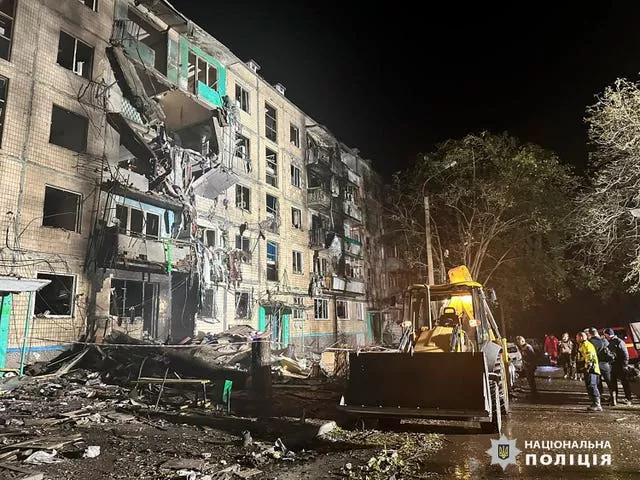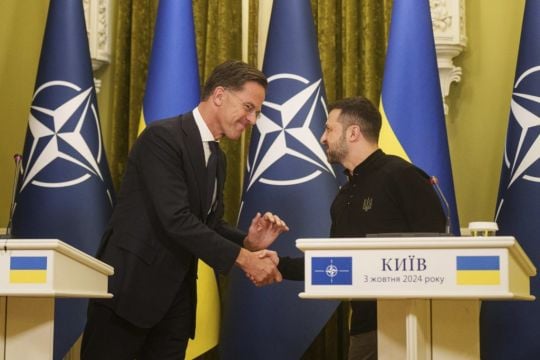New Nato secretary-general Mark Rutte visited Ukraine on Thursday in his first official trip since taking office and pledging continued support for Kyiv.
Mr Rutte met Ukrainian President Volodymyr Zelensky in Kyiv as air raid sirens twice went off in the Ukrainian capital.
The new head of Nato vowed on Tuesday to help shore up Western support for Ukraine, which has been fighting Russia’s full-scale invasion since February 2022.
Mr Rutte expressed confidence that he can work with whoever is elected president of the United States, the alliance’s most powerful member, in November. That could be a key moment for Ukraine’s effort to ensure continuing Western support.
Mr Zelensky said he discussed with Mr Rutte elements of Ukraine’s so-called victory plan, ahead of a Nato meeting at the Ramstein air base in Germany next week.
The two also discussed the battlefield situation and the specific needs of Ukrainian military units. Mr Zelensky reiterated that Ukraine needs more weapons, including long-range weapons.
“Of course, we want Ukraine to not be forgotten. But the best way not to forget about Ukraine is to provide the appropriate weapons and the necessary permissions,” Mr Zelensky said.
“And to help shoot down … the same Iranian missiles or drones, just as they are shot down over Israel, to shoot them down in the same way over Ukraine.”
Mr Rutte reiterated the alliance’s unwavering support for Ukraine, saying: “Ukraine is closer to Nato than ever before.”

When asked about the prospects for Nato membership for Ukraine, Mr Rutte said recent steps taken by Nato together “build a bridge to Nato membership,” including 40 billion euros (£33.4 billion) of funding assistance, bilateral security agreements between allies, and the formation of a new Nato command to co-ordinate assistance and training.
Mr Rutte arrived after a Russian glide bomb struck a five-story apartment block in Kharkiv, Ukraine’s second-largest city, injuring at least 12 people including a three-year-old girl, local officials said on Thursday.
The city of Kharkiv, around 30 kilometres (18 miles) from the Russian border, has been a frequent target of aerial attacks throughout the war against Russia that is now deep into its third year.
Ukraine has no effective countermeasure for glide bombs, which are launched from Russian aircraft inside Russia.
They were a key weapon in Russia’s capture of the tactically significant town of Vuhledar on Wednesday, as Russian forces wreak destruction on the eastern Donetsk region and force weary Ukrainian troops to withdraw from obliterated towns and villages.
Mr Zelensky, at a news conference with Mr Rutte, said it was right for Ukraine to pull its forces out of Vuhledar so that they could live to fight another day.
Earlier, he said the latest Kharkiv attack highlighted the urgent need for increased support from Ukraine’s Western allies.







